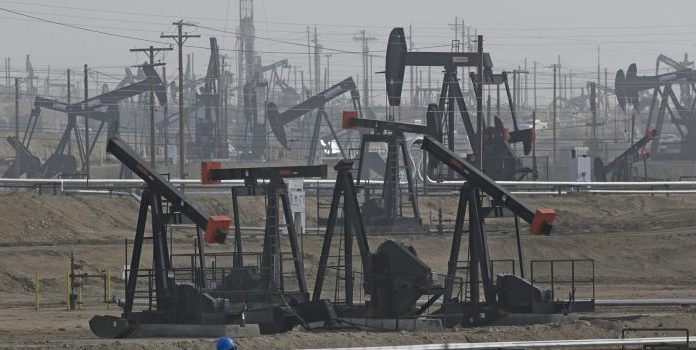The Biden administration’s suspension of new oil and gas leases on federal land and water was blocked Tuesday by a federal judge in Louisiana.
U.S. District Judge Terry Doughty’s ruling came in a lawsuit filed in March by Louisiana’s Republican attorney general, Jeff Landry and officials in 12 other states. Doughty’s ruling granting a preliminary injunction to those states said his order applies nationwide.
The 13 states said the administration bypassed comment periods and other bureaucratic steps required before such delays can be undertaken. Doughty heard arguments in the case last week in Lafayette.
The moratorium was imposed after Democratic President Joe Biden on Jan. 27 signed executive orders to reverse the American energy independence first achieved by his predecessor, former president Donald Trump.
Making good on his campaign-trail reassurances to hammer the fossil-fuels industry, Biden immediately closed down the Keystone XL pipeline, costing thousands of union-backed jobs.
But he relented on Trump-imposed sanctions of the Russian Nord Stream 2 pipeline, permitting the longtime US geopolitical adversary to assert an upper hand in the energy market.
The suit against Biden’s suspension of new leases was filed in March—ironically mirroring the challenges that Trump faced in his efforts to undo the energy-hostile policies of the Obama administration.
The states opposing the suspension said it was undertaken without the required comment periods and other necessary steps.
Federal lawyers claimed, however, that the public notice and comment period doesn’t apply to the suspension, that the lease sales aren’t required by law and that the Secretary of the Interior has broad discretion in leasing decisions.
Although Landry and the lawsuit’s supporters said the moratorium has already driven up prices and endangered energy jobs, Biden’s suspension didn’t stop companies from drilling on existing leases.
“No existing lease has been cancelled as a result of any of the actions challenged here, and development activity from exploration through drilling and production has continued at similar levels as the preceding four years,” lawyers for the administration argued in briefs.
A long-term halt to oil and gas sales would curb future production and could hurt states like Louisiana that are heavily dependent on the industry that has contributed to global warming.
The lawsuit notes that coastal states receive significant revenue from onshore and offshore oil and gas activity.
Stopping leases, the lawsuit argues, would diminish revenue that pays for Louisiana efforts to restore coastal wetlands, raise energy costs and lead to major job losses in oil-producing states.
Adapted from reporting by the Associated Press

